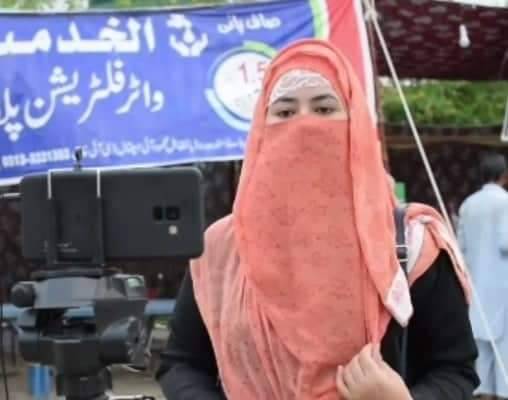
It’s not easy being a woman in Pakistan. A large number of women in the country does not have access to an education. Most women are not aware of their basic rights due to their less social exposure and many social constraints.
They fight daily for their basic rights: access to education, health services, nutrition, clean and safe drinking water. They struggle to be treated equally by the society and justice system of Pakistan.
Women face domestic violence and emotional abuse while forced marriages and sexual harassment are also the menaces that hinder their participation in the mainstream society. Beside all these challenges, women in Pakistan also struggle for access to transportation and jobs in public and government sector.
Despite all these problems, Pakistani women are fighting to become economically, socially and politically empowered. Through their struggle, they are on their way to be recognized and accepted and many experts have termed this positive development as ‘women’s revolution’.
Sabeha Sheikh, a young journalist from the Dera Ismail Khan city of Khyber Pakhtunkhwa, defied the odds to pursue a career in journalism - a field which is considered unsuitable for women among her community. She has a Masters in journalism from Gomal University.
Sabeha belongs to a conservative community where women are told to stay at home and do the household chores. But she broke stereotypes by pursuing her passion and adopting journalism as career, a field that is seen as male-dominated in the region.
Talking to NayaDaur Sabeh said, “Pakistan is certainly a male-dominated society where being a woman activist or journalist is difficult. But since we have created these barriers ourselves, we can break them too.”
Sabeha covers her face with a veil, but contrary to general perception about burka-clad women, her veil does not stop her from doing what she pleases.
She remembers having a hard time convincing her parents to let her study journalism. “They did not want me to enter the field because of the perception about journalism being a man’s job.”
DI Khan is one of the most backward areas in terms of education, and most women do not get even basic education. Sabeha is also running her own Facebook page by the name of Burqa Journalist (veiled journalist) which has more than 10,000 followers.
According to her she was rejected and discouraged on different occasions due to her veil because many were of opinion that it was impossible for her to be a journalist behind a Burka. But that did not deter her.
“I don’t think the burka is a hurdle to my work. I encourage women from all backgrounds to reject societal norms that stop women from achieving their potential.”
They fight daily for their basic rights: access to education, health services, nutrition, clean and safe drinking water. They struggle to be treated equally by the society and justice system of Pakistan.
Women face domestic violence and emotional abuse while forced marriages and sexual harassment are also the menaces that hinder their participation in the mainstream society. Beside all these challenges, women in Pakistan also struggle for access to transportation and jobs in public and government sector.
Despite all these problems, Pakistani women are fighting to become economically, socially and politically empowered. Through their struggle, they are on their way to be recognized and accepted and many experts have termed this positive development as ‘women’s revolution’.
Sabeha Sheikh, a young journalist from the Dera Ismail Khan city of Khyber Pakhtunkhwa, defied the odds to pursue a career in journalism - a field which is considered unsuitable for women among her community. She has a Masters in journalism from Gomal University.
Sabeha belongs to a conservative community where women are told to stay at home and do the household chores. But she broke stereotypes by pursuing her passion and adopting journalism as career, a field that is seen as male-dominated in the region.
Talking to NayaDaur Sabeh said, “Pakistan is certainly a male-dominated society where being a woman activist or journalist is difficult. But since we have created these barriers ourselves, we can break them too.”
Sabeha covers her face with a veil, but contrary to general perception about burka-clad women, her veil does not stop her from doing what she pleases.
She remembers having a hard time convincing her parents to let her study journalism. “They did not want me to enter the field because of the perception about journalism being a man’s job.”
DI Khan is one of the most backward areas in terms of education, and most women do not get even basic education. Sabeha is also running her own Facebook page by the name of Burqa Journalist (veiled journalist) which has more than 10,000 followers.
According to her she was rejected and discouraged on different occasions due to her veil because many were of opinion that it was impossible for her to be a journalist behind a Burka. But that did not deter her.
“I don’t think the burka is a hurdle to my work. I encourage women from all backgrounds to reject societal norms that stop women from achieving their potential.”
